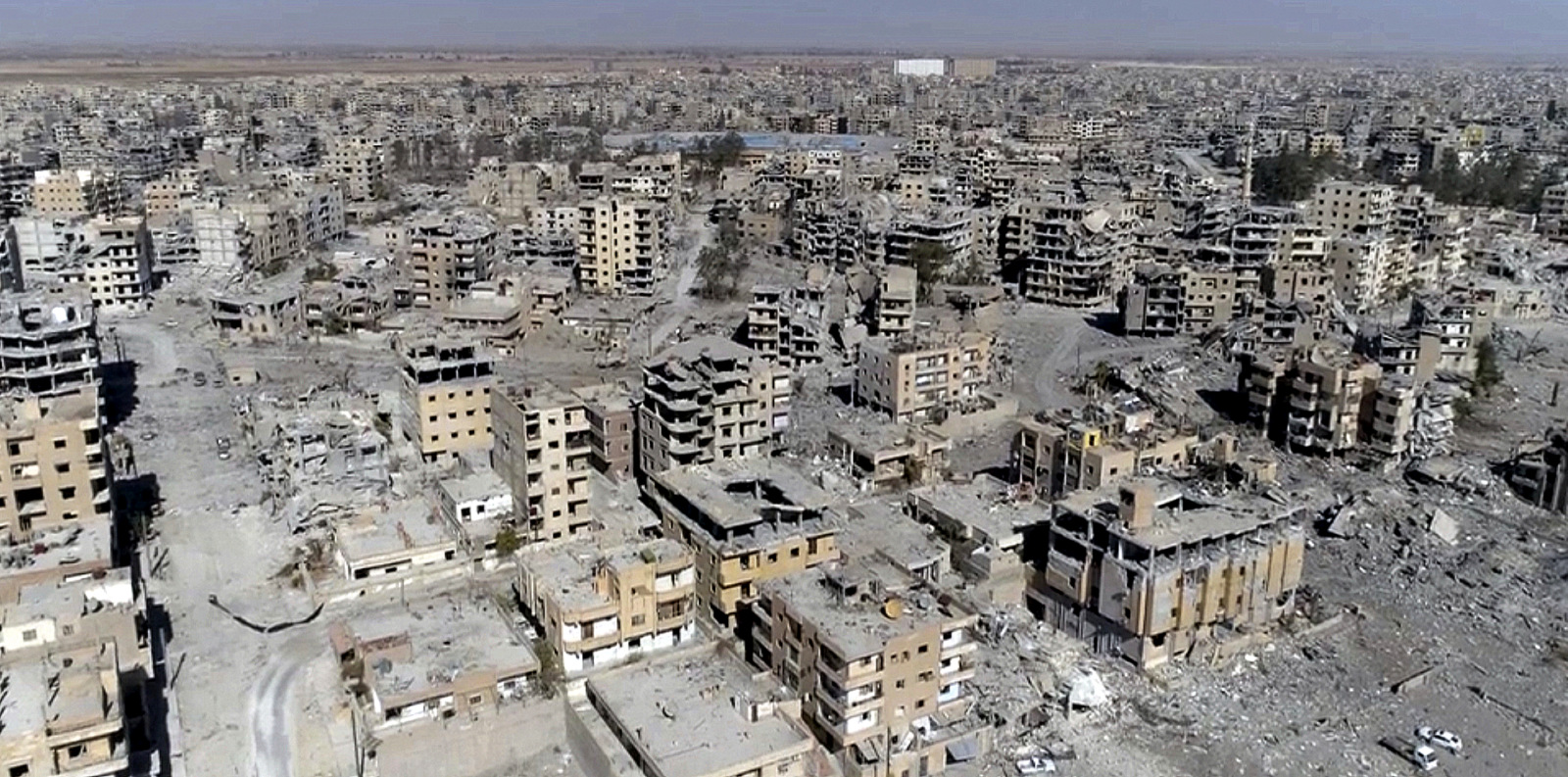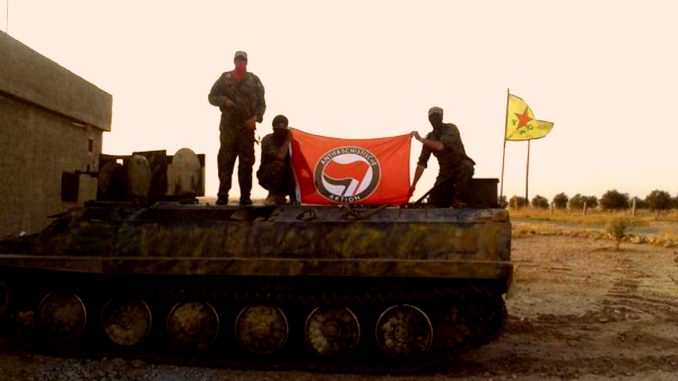News stories are full of quotes painting the situation as nearly unprecedented in its horror: “hell on earth,” “never seen anything like this,” “one of the worst attacks in Syrian history,” and “flagrant war crime” on an “epic scale.”
A New York Times editorial, calling the battle “one of the most violent episodes of the seven-year war,” demands that Syrian President Bashar al-Assad and Russian leaders be tried for war crimes. And a columnist for The Guardian says “Eastern Ghouta is turning into Syria’s Srebrenica,” the Bosnian enclave where thousands of Muslims were killed by Serbian forces in 1995.
That bombing has unquestionably been savage, and arguably even criminal. It should be condemned in no uncertain terms. But it does a grave disserve to the nearly half million people killed over the course of Syria’s civil war to single out the tragic killing of more than 300 civilians in that suburb as especially remarkable. Indeed, it betrays a political agenda aimed more at punishing the Damascus government than saving innocent lives.
Anyone who tries to correct the record risks being misinterpreted as trying to minimize the real suffering or defend the government. I wish to do neither. I harbor no illusions about the regime’s motives, and I can only imagine the anguish of those living under daily bombardment, trying to care for the wounded while wondering if and when they will join the many who have already died.
Read more by Jonathan Marshall
- Trump and the GOP’s Israel Policy Is About Defunding Democrats
- With Appointment of Defense Industry Insiders, Trump Adds to Washington’s ‘Swamp’
- Blaming Russia For The Failure Of The War In Afghanistan
- The Hawks March Lock Step Towards “Fire And Fury”
But the recent situation in Eastern Ghouta is unfortunately not as unique as recent media accounts suggest. Just last month, the respected, independent monitoring group Airwars reminded us that U.S.-led Coalition air strikes on the Syrian city of Raqqa created many more victims with the same destructive tactics of “siege, bomb and evacuate.”
In just one incident in March 2017, Coalition bombers killed as many as 400 civilians at a school near Raqqa, where hundreds of women and children were taking shelter from the war.
“By the time Raqqa was liberated on October 20th,” Airwars estimated, “more than 1,450 civilians had likely been killed by the Coalition since the start of June. Other monitors said that at least 1,800 civilians died in the fighting. Defeat of [the] so-called Islamic State had come at an extraordinary cost, with the UN reporting that 80% of the city was left uninhabitable – despite the Coalition’s continued insistence that is had been ‘waging the most precise war in history.’”


This Thursday, Oct. 19, 2017 frame grab made from drone video shows Raqqa effectively destroyed following US-Coalition airstrikes. (AP/ Gabriel Chaim)
UN and human rights workers, to their credit, decried the civilian casualties, but U.S. military commanders systematically downplayed them as exaggerated or “hyperbolic.” The Coalition bombing generated only limited concern in the West because of its worthy goal: liberating Raqqa from the grip of ISIS. (In the end, the BBC reported, hundreds of ISIS members were allowed to quietly escape the city unscathed as part of a secret deal with the Coalition.)
Yet when it comes to evaluating the morality (or lack thereof) of the Syrian government’s bombing of Eastern Ghouta, precious few news stories remind readers that most of the generically described “rebels” in that suburb are members of Islamist extremist groups, including at least one al-Qaeda affiliate. No reasonable government in Damascus would want them on its doorstep.
The regional director of the International Red Cross observed further that rebel forces were blasting Damascus with mortar shells, noting that “maybe this is a reality that is not really reported.”
Comparing the killing in Eastern Ghouta to such notorious events as the Srebrenica massacre is a not-so-subtle way of calling for further foreign military intervention against the Syrian regime in the name of humanitarian principles – precisely what has helped cause such prolonged war and devastation in the first place.
Anyone genuinely concerned with saving lives should, instead, urge rebel groups to join in United Nations-sponsored peace talks in Geneva, rather than boycotting them. Above all, they should ponder the words of Washington Post columnist David Ignatius following his recent return from viewing the unimaginable devastation in Raqqa:
“Raqqa is a warning to be careful about destroying the ruling order, anywhere, without knowing what will come next. Russian President Vladimir Putin keeps making this point – the United States was reckless to encourage the overthrow of authority in Syria, Iraq, Yemen and Libya without better planning for the “day after” – and he’s probably right. Too often, the vacuums have been filled by warlords, foreign mercenaries and death cults.”
“The United States and its allies nearly destroyed Raqqa to rescue it from a caliphate that governed by torture,” he concluded. “It was a just war, but we should try hard to avoid having to fight one like it again.”
Top Photo | Smoke and debris rising after a Syrian government ground-to-ground rocket strikes the opposition-held town of Ain Terma, in the Eastern Ghouta suburb of Damascus, Syria. (Ghouta Media Center via AP)
Jonathan Marshall is the author or co-author of five books on U.S. foreign relations and international affairs. His many articles on Syria include “Hidden Origins of Syria’s Civil War,” “Death of the Syrian ‘Moderate’ Fantasy,” and “How The New Yorker Mis-Reports Syria.”
<!–
–>
Source Article from https://www.mintpressnews.com/east-ghouta-selective-outrage-undermines-human-rights-in-syria/238058/
Related posts:
Views: 0
 RSS Feed
RSS Feed

















 February 24th, 2018
February 24th, 2018  Awake Goy
Awake Goy 



 Posted in
Posted in  Tags:
Tags: 
















